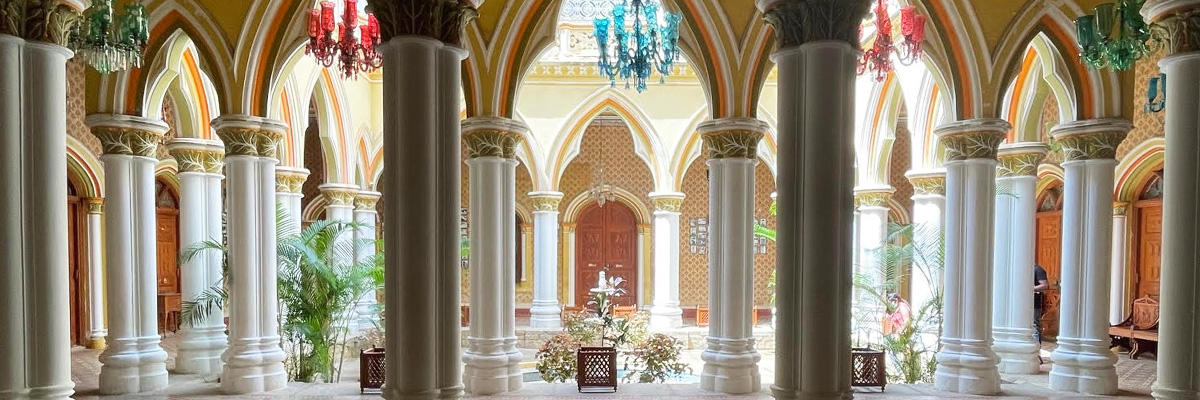Bengaluru Courses – 2024 Summer
Studying abroad can be a more meaningful and invigorating learning experience than at home—both inside and outside of the classroom. You may be more curious and alert than you usually are so use this heightened energy to enhance your studies as well as your cultural and geographical explorations. You may also encounter different teaching styles and course processes; be prepared to adapt and to learn.
Courses
You will enroll in three to seven credits during the 5-week summer session. At least one 3-credit course is required. Course availability is contingent upon student interest and enrollment and is subject to change.
Click the course title to view course details, description, and availability.
- SummerSociology Women's Studies / Gender Studies 400-level 3 credits Taught in English
The social and structural hierarchy in India controlled the lives of its people throughout history. The Indian caste system has not only integrated itself into the culture, but it has also been the cause of inequality that has oppressed classes of people for centuries. This course will cover topics such as the history of the caste system, religion, politics, gender, and class inequality.
- SummerAnthropology Sociology 300-level 1 credit Taught in English
India showcases a vibrant amalgamation of different thoughts, languages, cuisines, landscapes, fashion, architecture and people. In ‘Indian Cultures and Traditions’, we proudly pay tribute to the world’s greatest celebration of diversity-starting with the primordial Vedic ages, touching upon the grandeur of the Mughal era, narrating the riveting tales from the colonial period, and concluding with the wonder that is contemporary India. In this course, the students not only learn about India, but truly live and breathe in it too. They experience its rich and fiery spirit, clearly visible in dusty streets, crowded markets, old restaurants, marvelously adorned temples, mosques, churches and gurudwaras (sikh temple), and in the sweaty wide-eyed grins of the auto-walas. They can easily envision being an Indian citizen, with activities like shopping for spices and vegetables, going to the theatres, sipping tea from stalls, making chana masala, and weaving a million unforgettable memories. The festivals (from Holi to Diwali) which they write about in their research papers are also felt in their raw and real forms and gloriously enjoyed. Join us as we revel in the explosion of colours and cultures, and explore with us the depths of the soul of India.
- SummerEntrepreneurship General Business Management 300-level 3 credits Taught in English
This course provides a comprehensive exploration of Indian family businesses and their strategies for survival through multiple generations. With a focus on cultural, economic, and managerial perspectives, students will gain insights into the unique challenges, successes, and strategies employed by Indian family businesses to ensure their longevity.
- SummerHistory Sociology 300-level 3 credits Taught in English
The Indian national movement was undoubtedly one of the biggest mass movements modern society has ever seen. It was a movement which galvanized millions of people of all classes and ideologies into political action and brought to its knees a mighty colonial empire. Consequently, along with the British, French, Russian, Chinese, Cuban and Vietnamese revolutions, it is of great relevance to those wishing to alter the existing political and social structure.
Various aspects of the Indian national movement, especially Gandhian political strategy, are particularly relevant to the societies that broadly function within the confines of the rule of law and are characterized by a democratic and basically civil libertarian polity. It is however relevant to other societies too. We know for a fact that even Lech Walesa consciously tried to incorporate elements of Gandhian strategy in the Solidarity Movement in Poland.
Gandhi did not claim to be a prophet or even a philosopher. “There is no such thing as Gandhism,” he warned, and “I do not want to leave any sect after me”. There was only one Gandhian, he said, an imperfect one at that: himself.
The most important event in the Indian politics after the First World War was the advent of M. K. Gandhi. Gandhi discovered India in discovering himself. It is important indeed to understand Gandhi’s political life and particularly his non-violence, in the light of this radical discovery, from which, everything else received its meaning.
- SummerCommunity Health Sciences 400-level 3 credits Taught in English
India is rich and diverse in her medical tradition since ages. The medical pluralism exists today in this country encompasses embracing of world culture as we have multiple medical systems such as biomedicine, ayurveda, unani, siddha, homeopathy, naturopathy, yoga, Chinese and Tibetan medicine and a variety of folk traditions. “The emergence and arrival of different medical systems, their acculturation into various communities, as well as the way they synchronized and contested with the indigenous are quite unique to Indian medical and cultural history” (Sujatha, V and Leena Abraham, 2012). This course, therefore, is distinctive in its approach in addressing the health care services in India today and its various issues. Students will also experience some healing practices through field visits and observation which will be thought provoking and inquisitive.
To request a course syllabus: syllabus@usac.edu
U.S. Visiting Professors
While most USAC courses are taught by local faculty, the following U.S. professor will also teach in this program:
Bengaluru Summer, 2024
Course: Gandhi and Peace Studies
Arvind Elangovan, Wright State University
Dr. Arvind Elangovan is Professor of History at Wright State University. His research and teaching interests include Political and Constitutional history of South Asia, 19th and 20th centuries, Nationalism, Colonialism, Comparative Decolonization, Postcolonial India, History of Political Thought, and Social Movements.

